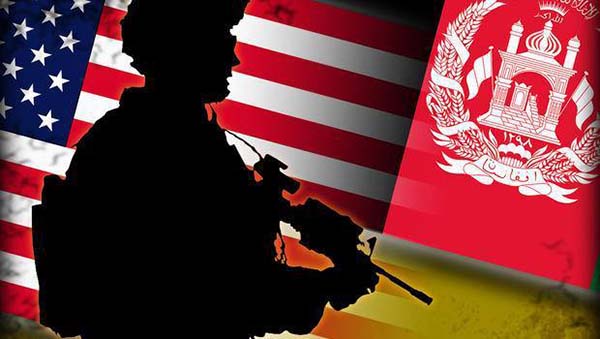Last Sunday during a meeting with German foreign Minister Frank-Walter Steinmeier, President Hamid Karzai once again stood on refusal stage of not signing the Bilateral Security Agreement (BSA) with Washington unless his demands fulfilled. He said that he would not sign the deal until peace talks with the Taliban were revived and raids on Afghans homes stopped by foreign soldiers.
In response, Mr. Steinmeier also linked the non-combat commitment of international community to its signature saying that signing of the deal would help accomplish the international community’s non-combat mission in Afghanistan. Both leaders also exchanged their formal diplomatic complements. Mr. Karzai appreciated German cooperation with his country and hailed as steadfast friend. Vice versa, Steinmeier renewed his country’s commitment to developing the country.
Recently, Mr. President has become more vivid about his demands. Previously, he was putting the list of his demands in equivocal manner saying that Washington should consider them. But he has become vocal, putting the issue of the so-called raids on Afghan houses and reviving peace talks with Taliban.
Without pondering deep why Mr. President has taken very flexible stance, the above two issues also do not look very realistic and small to disrupt the bilateral relation. Both the US and German and diplomats endeavored for over two years to bring the true Taliban representatives on the negotiating table. A political office was opened in Doha, the capital of Qatar. But it was soon closed down over harsh criticism of Afghan officials and civilians. Both officials and oppositions called the office as government in exile as it had the name of Emarat-e-Islami, the name referred to regime during its rule on country, and also its shivering flag. Perhaps despite the clandestine effort of foreign diplomats to convince Kabul officials to compromise and commence negotiation with Taliban representatives, but their anger and widespread opposition of press left no chance for the process of the move. Over two years of hard-work and lobbying through different channels all wasted. Taliban representatives also dispersed and I really doubt if our officials have any clue of their whereabouts and what exactly they are working with.
Certainly, if Mr. President really wanted to reach to a peace deal with Taliban, it was quite unwise to sabotage such an opportunity. Instead of blaming US of plot and alliance with militants, it was highly better for Mr. President to use the domestic anger and persuade Washington to redecorate the political office in a manner that should not be interpreted as a challenge to his authority at home.
But Mr. President did completely opposite of this. He used united anti-Taliban front to sabotage the peace negotiation for which US and German invested a lot. He did not show any flexibility as he does today but from another front. He blamed the US of alliance with militants against his government while today he asks it to revive peace talks. He even blames the US of alliance with militants of not supporting peace process to succeed.
Such contradictory stances have dragged our relation with international allies into further complication. Indeed what actually Mr. President is mean turning over and restart the same process which he himself sabotaged once again, however, with minor differences.
Additionally, Taliban often called that they are not going to negotiate. Previously, they were ready to talk with United States but ostensibly have budged back. They are certain the course of time may ended up to their favor. The international community is exasperated and resolved to pull out their troops. End of 2014 is the deadline. Foreign politicians have already pointed out that the pullout would happened irrespective of the ground security situation. A very small number of soldiers will stay that also for training Afghan soldiers and carrying pilot operations that is also if Mr. President sign the BSA. Though there is widespread support for the deal but Taliban leaders have not lost hope and they may try their best to prevent its signature, perhaps, showing a flexible approach. In zero military option would be complete victory for Taliban and terrible failure for Afghan government. I do not think so, as far as Taliban feel themselves on wining position, they will restart a true and sincere negotiation with government. The only thing that can help peace is discouraging militants of winning the war. If they reach to a conclusion that through violent means cannot reach to their objectives, they will negotiate.
The second demand of Mr. President also seems like the first one. As the tension spiked, NATO have also declined their operations. Some aerials operations are carried out only when Afghan soldiers demanded for. If Mr. President want that foreign operations should be stopped completely thereafter, that does not fulfill the national interest. In brief, such a policy will encourage militants to have more assertive stance while fighting against Afghan security forces as they will get the feeling of security against aerial strikes.
Furthermore, the type of operations which may be carried out by US soldiers left behind will be limited to target of al-Qaeda’s cells and individuals. As the experience, such operations are carried out with high caution and precise that bring down the civilian casualties to possible minimum. Thus, the demand not only does any good to our national interest rather spoils them.

